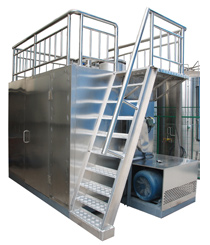- Applications
- Material Development
- HOME > Applications > Material Development
- Tel
- 400-820-6150
Grinding and Classification Processes of Polymers and Other New Materials
Description:polymer and other new materials are often applied in high wear resistance, high strength, high corrosion and other special industry composites applications such as cosmetics, pesticides and other industries. Cosmetic applications involve adding various ingredients in the matrix of common refined chemical products. Through adding conditioners, preservatives, colorings, water-soluble polymers, surfactants, humectants, cosmetic drugs, metal ion binder and other ingredients, cosmetics manufacturers need to be able to make a variety of cosmetic formulations. According to the complexity, the materials need to be compatible for a better mix. In pesticide processing, in order to improve bioavailability and dosage reduction, the most effective way involves reducing the particle sizes through ultrafine grinding. Ultrafine wettable powder (WP), with improved properties applicable to pesticides and surface active agent, is achieved by grinding powders obtained from traditional grinding process into finer powder. The ultrafine WP in water becomes a viscous homogeneous suspension, with these advantages: minimal particle clumps, uniformity, and a large administrative surface area, greatly improving sterilization, insecticidal and herbicidal effects if the pesticide is applied for a plant growth applications, reducing time spent, greatly increase the degree of effectiveness and reduce the quantity of pesticides used. Superfine powder in agricultural products and appropriate environments accelerates the rate of decomposition, reducing pesticide residues and decreases pollution.
Categories of Polymer Materials:
Polymer materials can be classified based on origin into natural and synthetic polymer materials.
Natural polymers are found in animals, plants and other living multi-cellular organisms, and can be further divided into natural fibers, natural resins, natural rubber, gelatin, etc. Synthetic polymer materials mainly refer to plastics, synthetic rubber and synthetic materials, including adhesives, coatings, and various functional polymer materials. Synthetic polymer materials having a synthetic origin usually has superior properties - less dense, high mechanical, wear resistant, corrosion resistant, electrical insulation, etc.
Polymeric Materials Applications: Polymer materials have various applications based on their characteristics of rubber, fibers, plastics, polymer adhesives, polymer coatings and polymer-based composites.
Common grinding and classifying processes: polymer materials commonly used ultrafine grinding, jet milling and cryogenic grinding.
Ultrafine grinding: common grinders, high output, low energy consumption.
Jet Milling: high value-added ultrafine grinding applicable.
Cryogenic grinding: for temperature sensitive, high moisture applications to these products.



FQ Series air mills FSL series ultra low temperature grinding production line FJ series pulverizer

